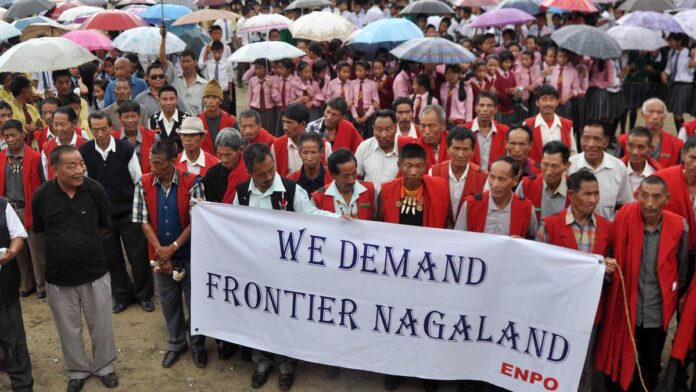The Eastern Nagaland People’s Organization (ENPO) has announced its decision to abstain from participating in the upcoming Urban Local Bodies (ULB) elections in Nagaland. This move by the ENPO, representing the interests of the eastern region of Nagaland, has significant implications for the state’s political landscape and raises important questions about representation, autonomy, and governance.
The decision to boycott the ULB elections comes amidst longstanding grievances and demands by the ENPO regarding issues of governance, representation, and administrative autonomy for the eastern region of Nagaland. The ENPO has been advocating for the creation of a separate administrative unit comprising the four districts of Tuensang, Mon, Longleng, and Kiphire, collectively known as the Eastern Nagaland region.
The ENPO’s decision to abstain from the ULB elections is a reflection of the organization’s dissatisfaction with the state government’s response to its demands and concerns. Despite repeated appeals and protests, the ENPO feels that its grievances have not been adequately addressed, leading to a breakdown in trust and communication between the organization and the state government.
The ULB elections, scheduled to be held later this year, are seen as a crucial opportunity for grassroots representation and democratic participation in urban governance. However, the ENPO’s decision to boycott the elections raises questions about the inclusivity and legitimacy of the electoral process, particularly in the eastern region of Nagaland.
The ENPO’s boycott of the ULB elections is likely to deepen existing fault lines and tensions within Nagaland’s political landscape. The organization’s demands for greater autonomy and representation for the eastern region have been a source of contention and debate for many years, and the decision to abstain from the elections is likely to reignite discussions about these issues.
The boycott also highlights broader challenges related to governance and administrative reform in Nagaland. The state’s complex political and administrative structure, characterized by overlapping jurisdictions and competing interests, has often hindered efforts to implement meaningful reforms and address longstanding grievances.
The ENPO’s decision to abstain from the ULB elections underscores the need for a more inclusive and participatory approach to governance and decision-making in Nagaland. It serves as a reminder that the concerns and aspirations of all communities and regions within the state must be taken into account in the formulation of policies and initiatives.
In response to the ENPO’s decision, the state government has expressed regret and disappointment, urging the organization to reconsider its stance and participate in the democratic process. Chief Minister Neiphiu Rio has emphasized the importance of dialogue and cooperation in resolving differences and advancing the interests of all communities in Nagaland.
However, finding a resolution to the longstanding grievances of the eastern region of Nagaland will require more than just rhetoric and appeals for cooperation. It will necessitate genuine efforts by all stakeholders to address the root causes of discontent and to work towards a more equitable and inclusive system of governance.
The ENPO’s decision to abstain from the ULB elections in Nagaland sends a clear message to the state government and the wider political establishment. It is a reminder that the voices and concerns of marginalized communities cannot be ignored or brushed aside, and that meaningful dialogue and action are needed to address their grievances and aspirations.
As Nagaland prepares for the upcoming ULB elections, the ENPO’s decision serves as a sobering reminder of the challenges and complexities of governance in the state. It underscores the need for a more inclusive and participatory approach to governance that takes into account the diverse needs and aspirations of all communities and regions within Nagaland.



